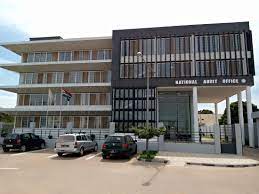
According to the report, seven respective reports have been completed and sent to the National Assembly but unfortunately all those reports have not been discussed at the Assembly level thus questioning why?
The report also added that the discussions of those reports would have helped publish the report, put pressure on the relevant officers to implement the recommendations and eventually translate into better service delivery to improve the life of the citizens of The Gambia.
Solid Waste Management by the Banjul City Council in 2016, HIV AIDS Prevention Treatment, Care and Support in The Gambia in 2016, Distribution of Electricity by NAWEC within the Greater Banjul Area in 2017, Management of the Community Fisheries Centers in 2018, Drug Storage and Distribution by the Central Medical Store in 2018, Monitoring of Education System by MoBSE in 2020 and Emergency Obstetric Care (EmOC) in Public Health Facilities in 2020, were the reports sent to the National Assembly.
Furthermore, the audit office recommended that the Ministry of Health should ensure that the health centers are strengthened both in terms of human capacity, theatre infrastructure and equipment to better manage obstetric emergencies before and during referrals.
“The Ministry of Health should consider the possibility of training other cadre of the midwifery other than the RN/Ms on AVD so that the quality of the care provided can be enhanced, especially when RN/Ms are not available in all the facilities mandated to provide the services,” the report revealed.
The report also stated that the Ministry of Health should consider making available feasible diagnostic methods for testing for anaemia, and other necessary investigations at the trekking stations to improve the detection of anomalies at that level without the need for traveling to health facilities for such examinations.
The report further noted that the Ministry of Health should ensure that the existing midwifery staff are efficiently allocated based on clear guidance above the minimum norms and also that the minimum staffing norm should be revisited and adjusted to the realities on the ground.
NAO also recommended that the Ministry of Health should ensure facilities are well equipped to provide efficient and effective services for patients, and that there is always timely, available and replacement of medical equipment facilities.




